What do you do with children in worship?
Practical Ideas for Education and Training
Scene 1
The rocker slowly creaks back and forth in hypnotic tranquility. The young mother has been at it for a few minutes, though it feels like hours. Why won’t sweet Sofia settle down? In what could be a frantic moment in her first child’s first day at home, an unexpected calm settles in. Suddenly, this frantic moment has become a profound moment, one no lullaby could ever touch. The words come out in quiet chant: “Lord, have mercy. Christ, have mercy. Lord, have mercy.” The mother recalls that her help in her new vocation will come from Christ himself. Without thinking, she starts into a new “lullaby”: “Glory to God in the highest and peace to his people on earth.” By the time she gets to “O Christ, Lamb of God, you take away the sin of the world,” she is not sure whether she or the baby will better sleep in heavenly peace that night.
Fast forward two years. Another profound moment. This mother had been joyfully smiling at little Sofia who clings to her favorite stuffed animal among the dozens in her room—a lamb. The mother has happily reported to her pastor how the young “soloist-to-be” runs around the living room shout-singing, “Holy, Holy, Holy!” She has reflected on her daughter’s ever-so-brief pauses from coloring during church to perk up when she hears the congregation singing Kyrie, eleison. But in this new profound moment she also has a moment of clarity. The memories of that first night home come flooding back, along with the last 24 months’ worth of liturgical lullabies and regular wrestling through worship. She suddenly gets it! Two years of catechesis, of faith formation in both home and church, have thoroughly shaped Sofia! As the lightbulb flashes in her mind like bright neon lights, she realizes that this symbiotic relationship of church and home will have eternal impact on her precious little one. Worshiping at home (and teaching about worship at home) is something her family will certainly not stop any time soon—the immediate and eternal blessings are far too rich!
Scene 2
A forklift would be needed to lift the parents’ jaws off the floor. They came for cute moments of pageantry, but they certainly got more than they bargained for. These two parents are among a half dozen preschool families new to the concept of church. It just “hasn’t been their thing” yet as they have sifted through the identity of their own personal truth. But they at least knew their kid needed a preschool that was safe and moral, so they chose the highly rated Lutheran one nearby. They were pleased with the first five months of school and were excited for the preschool Christmas service. After all, who could deny that little Tommy in his mini three-piece suit singing at a church would make one amazingly boast-worthy Instagram cover photo?
But the giddy excitement froze in time. If their iPad hadn’t filmed it, they wouldn’t have believed it even happened. This sweet little chorus erupted with preschool enthusiasm to belt out, “Nails, spear shall pierce him through, the cross he’ll bear for me, for you.” Say what? They were expecting to hear about a silent night or a little manger or perhaps “Merry Christmas” and “Here comes Santa Claus.” But this? It was shocking to see their little baby sing about another baby who would go on to die. They didn’t know what to say. That is…until three days later. Three days later they tried out the Christmas Eve candlelight service at the same Lutheran church. They marveled at little Tommy who was singing half the hymns from memory, hymns he learned during preschool song time! As the pastor then unwrapped the marvels and mystery of the incarnation that night, the parents shared a look that said, “This place is pretty special! Our whole family needs more of this!”
Scene 3
Ten kindergarteners solemnly process into a room, not coerced but definitely coached. Though the room is dimly lit and the one adult stands with a silent smile, they all know the routine. Each takes off their shoes. Four of them distribute mini-hymnals to the group. Three of them place a clean white cloth gently and neatly over a table situated perpendicular to three rows of chairs. The last three work with the adult to place candles on the table and carefully light them. Without prompting, they complete their tasks and file into their seats.
The adult begins, “In the name of the Father and of the Son and of the Holy Spirit.” The young children cross themselves and joyfully say, “Amen!” The leader continues, “Jesus Christ is the Light of the world.” They enthusiastically reply, “The Light no darkness can overcome.” Each child then lights their own little candle, gazing with wonder into the fire yet also remembering that their teacher told them how they were marked with the sign of the cross and given the light of Christ and resurrection at their baptisms.
As it turns out, sweet little Sofia and three-piece-suit Tommy are classmates in this Sunday School room. Sofia has been at the church since birth and has been learning worship “stuff” since night one in that rocking chair. Tommy was just baptized last year (shortly after that Christmas service) and is relatively new to worship outside of what he hears in preschool. His family has been in membership for five months. However, both of them are thoroughly enjoying this catechetical experience. For one month each year, their Sunday School takes a break from normal lessons for “worship training mode.” The children enter a room that is set up to be a mini sanctuary. They are taught to revere the presence of a holy God yet appreciate his grace allowing them to enter into his presence. They work together, almost like a mini-altar guild, to set up the worship space. Then they continue with a brief 30-minute service of sorts with a few sensory-filled rituals, hymns, songs of the liturgy, and a brief lesson based on the theme for that Sunday. They conclude with 20 minutes of activities related to the Sunday or the season.
This one-month intensive worship teaching and training each year has made little children very enthusiastic about worship.
What Sofia and Tommy have been experiencing is based on The Catechesis of the Good Shepherd. It’s an immersive worship experience for children designed by Sofia Cavaletti and patterned after Maria Montessori’s self-guided play theories. (Those with preschool ministries have likely heard of Montessori methods). The congregation has found that this one-month intensive worship teaching and training each year has made little children very enthusiastic about worship. The pastor has found that some of his 4-year-olds know more about worship than some of his 54-year-olds! Meanwhile, the parents have found both at home and church that their children are clearly the examples of faith and worship that Jesus once stated.
The Ideal: Partnership in Discipleship
Are such scenes even possible?
It would seem as though a wise first step in our congregations would be to follow in Luther’s steps (again!) and double down on families. Surveys strongly indicate that parents and children would benefit from more teaching and training regarding worship. But when presented with some test materials that could help in this matter, more than 75% of focus group parents indicated they would like more materials to help their family engage in worship. Our congregations seem to want help, too. The survey of WELS pastors indicated that 78% of them would be highly interested in materials that help teach and train parents to teach and train their children.
The first article in this series (July 2018) posed the question: What do you do with children in worship? In subsequent months we pondered parents’ struggles as culture has corroded and families have struggled. Pragmatic Westerners, of course, offer solutions to perceived problems. Thus, we reviewed things like children’s sermons, children’s church, Sunday school offered during worship, and other options. But each popular solution has weaknesses: keeping children occupied only for a few moments, or completely removing them from worship. Therefore, though Christian freedom allows various choices, not all may be beneficial or best.
Following this we turned to the Scriptures for both prescription and description. Prescribed were God’s commands about the vocation of parents who have primary responsibility for spiritual training. Also prescribed is God’s command for all to worship him. Though we may desire more detail on many accounts of public gatherings and worship, it is reasonable to assume that God’s people brought their children to worship.
Church history suggests the same. There is good evidence of children being incorporated into worship. The church fathers exhorted parents in their responsibilities—descriptions that again allow us to conclude that parents would bring even the youngest of children to worship. A brief survey of science also supported the value of all children being in worship. Children learn best by doing, from repetition, with their senses, and all of this especially when they are with their parents. Science suggests worship alongside parents is an ideal place for children.
Any solutions to improving ministry to and worship with children must focus on the parents.
Finally, it was noted that the problem is not really with the children. The problem is actually with the parents. Thus, any solutions to improving ministry to and worship with children must focus on the parents. Parents need teaching and training so that they in turn can teach and train their children. This is what the Church is called to do—to equip the saints for works of service within their vocations.
So, are the previously described scenes possible? Could the fictional and ideal become the factual and real? I believe they can when we work toward an ideal partnership between home, church, and school (where applicable).
The Home
Parents today often find themselves barely treading water in a vast ocean of information with waves of cultural influence crashing down on them. Thus, first and foremost, parents need to grab hold of their identity in Christ. When parents look for identity in their children, the children can become all-consuming idols that demand worldly focus. Parents who know their identity as children of God in Christ will understand the importance of fixing their hearts and minds on things above, not on earthly things—including their children. Furthermore, parents who are regularly taught their identity in Christ will grow to a fuller understanding of the importance of teaching children their identity in Christ, too.
When parents look for identity in their children, the children can become all-consuming idols that demand worldly focus.
Next, parents need teaching and training regarding how to parent. Simply being a parent does not equate with doing it well. Every Christian needs vocational catechesis, and parents are by no means an exception. It is best to start with teaching and training Scripture’s foundational principles about love, discipline, and physical and spiritual care for children. Then good and godly practical parenting strategies could be shared with parents. As they receive guidance in parenting at home, this will in turn help with their parenting in the pews.
Simply being a parent does not equate with doing it well.
Finally, parents need teaching and training regarding worship. Parents need to be reminded what worship is, whom God calls to worship him, why God’s people worship, and how they worship. When they better understand these truths, they will surely understand the importance of their children being in worship with them and the whole body of believers. As parents learn to understand and engage in worship themselves, they will better teach and train their children to do the same.
In order to accomplish these goals of teaching and training parents, it is wise for congregations to offer various educational and training opportunities. Bible studies on the topics of parenting, family life, worship, and more should be regular in the rotation. For those new to the church, pastors are wise to teach thoroughly about worship and children in worship already in Bible Information Class. Pastors can teach those with and without children what is expected of parents and children in worship. Additionally, pastors and church leaders can suggest or provide materials that facilitate home worship and that help teach and train both parents and their children. The more and the earlier children have the words and songs of worship (liturgy, hymns, psalms, etc.) in their hearts and on their lips in private worship, the better they will actively join with the full body in corporate worship.
The Church
But it’s not enough for parents and children to be taught and trained. While parents are in the trenches with the children, others sometimes criticize and complain. Congregations need education on the topic of children in worship.
While parents are in the trenches with the children, others sometimes criticize and complain.
Pastors and church leaders would do well to patiently and lovingly instruct on this issue. Rather than jumping into a practical solution fad—such as offering child care or Sunday School concurrent with worship—these leaders can teach the entire congregation what God says about worship, the Church, parenting, children, and the intersection of them all. Congregations always benefit from learning more about doctrine and practice. But they also do well to learn how to “make every effort to keep the unity of the Spirit through the body of peace.”
Loving instruction might mean having some difficult conversations. It might mean telling some elders that they need to be more patient with parents’ struggles and that their privilege in Christ is to be a loving part of the solution, not a part of the problem. Then again, loving instruction might mean a difficult conversation with a young family, telling them that sometimes they might need to step out with the baby a bit earlier. Their effort to be present in worship and train in worship is marvelous. But some days for tykes and toddlers are just plain rough. While members can be taught to be patient and loving on this issue, it’s helpful for parents to step out sometimes so that others can maintain focus in worship.
Finally, pastors and congregations can strategize ways to encourage and facilitate children worshiping. Could the Sunday school take a month off from Bible stories each year for worship teaching and training? Could a church implement during those weeks, or perhaps during a midweek study, The Catechesis of the Good Shepherd (described above)? Or might the worship folder provide clear and loving guidance about children and families? What about removing the “reserved pew” signs in back and encouraging families to sit up front where a child’s senses will be more engaged? How about using a children’s choir to sing a liturgical song or psalm refrains? How about an acolyte program…or a junior usher program…or kindergarteners joining adults to hand out the friendship registers during the offering? Congregations can explore many ways to bring children to the forefront and encourage their worship life as valued members of the body of Christ.
The School
For those who have preschools or schools, a quick word may be of use. Most WELS schools have a mission statement that includes the conviction that the school is an arm of the church and is a partner with parents. This certainly can remain true on this topic of children in worship!
Teachers can be encouraged to incorporate worship concepts into Bible stories. When teaching about John the Baptist, talk about the font, baptismal symbols in the church, and the sign of the cross. When teaching about Maundy Thursday, Good Friday, and Easter, talk about the precious Sacrament their parents joyfully receive as they commune with the risen Christ. When teaching the life of Christ, show how the songs of the Ordinary parallel the life of Christ. During quiet time in school preschool teachers can make clear the importance of quiet time in the pew as well.
Most schools, even preschools, have a hymnology curriculum or regular set of songs that are learned. The pastor can work with the teachers to ensure that children are learning the hymns sung most often in worship. Could liturgical songs or psalms also be part of this effort?
Speaking of the pastor and the school, what treasured moments are available in school chapel! It’s wise for the pastor to regularly lead chapel. Those are precious pastoral moments for a multitude of reasons. Pastors can use school chapel as a time to teach about worship, the liturgy, the Sacraments, the sanctuary, symbols, imagery, and more. The school is a priceless partner of both church and home!
Conclusion
“Yes, as God gives me strength.” It is truly a special moment in our worship life. Parents are beaming with smiles, barely containing their joy. As they gaze at their newborn, they know that as the water was poured onto the forehead, God himself poured open the floodgates of his grace and welcomed that child as his own with the gifts of forgiveness, life, and salvation. While the congregation looks and listens with shared joy, the pastor asks if they are willing to assist in whatever manner possible so that the child may remain a child of God until death. The people respond, “Yes, as God gives me strength.”
With those words the entire congregation pledges before God to “assist in whatever manner possible” so that child remains faithful until reception of the crown of life. Raising a Christian child is first and foremost the God-given responsibility of the parents. But they are not alone. The entire Christian Church works together to train children in the way they should go—both in faith and in worship.
May God fill us with his grace so that we abound in patience, love, diligence, and wisdom as we teach the next generation the praiseworthy deeds of the Lord. May God then fill us with joy to join those children to worship the Lord with gladness for our growth and his glory.
Written by Phil Huebner
Learn about how WELS is assisting congregations by encouraging worship that glorifies God and proclaims Christ’s love.
WELS Commission on Worship provides resources for individuals and families nationwide. Consider supporting these ministries with your prayers and gifts.
[fbcomments num=”5″]
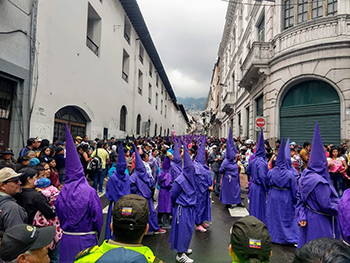




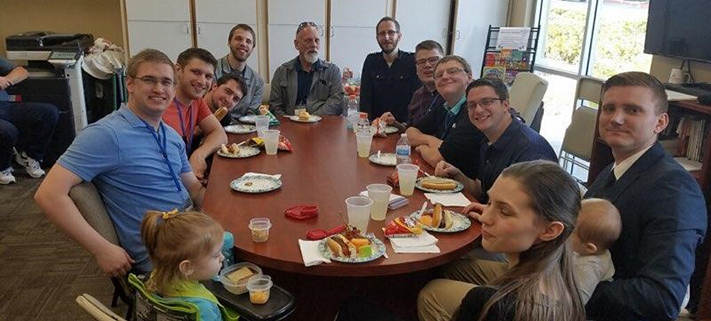
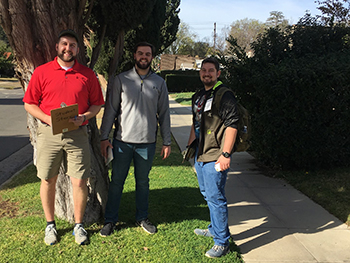

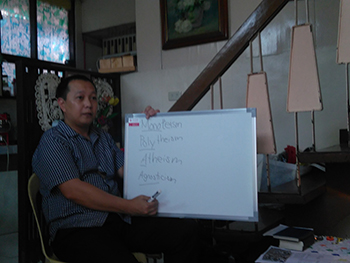

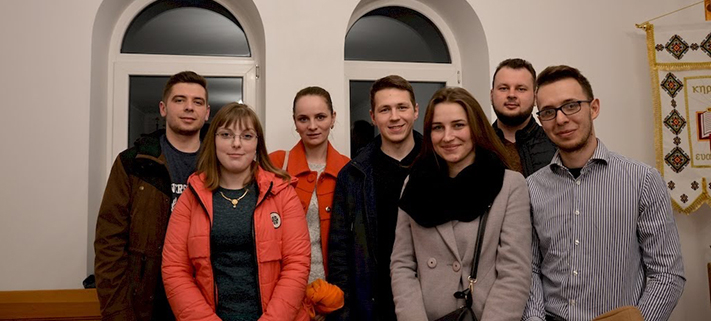
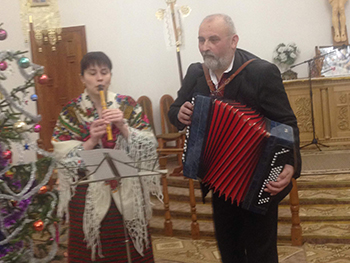
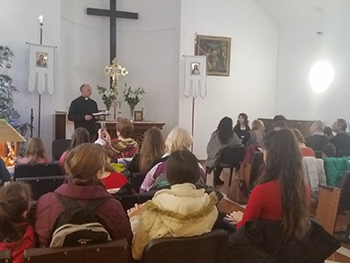

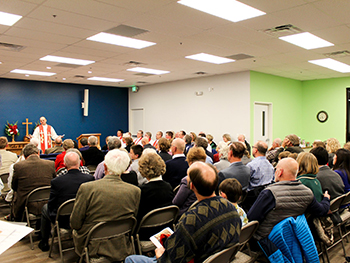
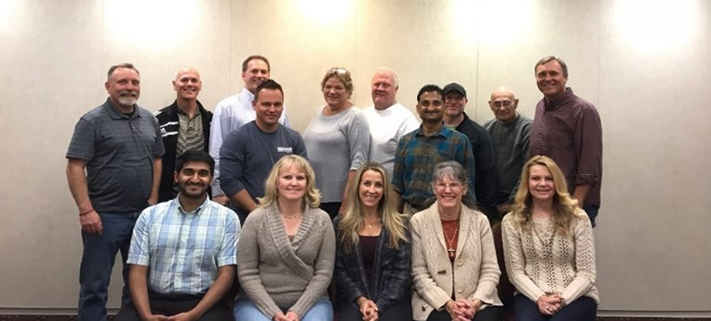
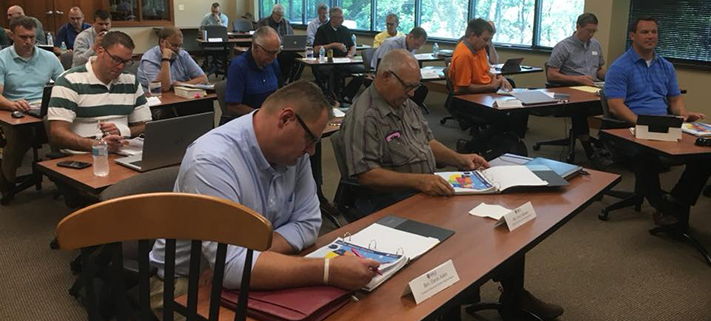

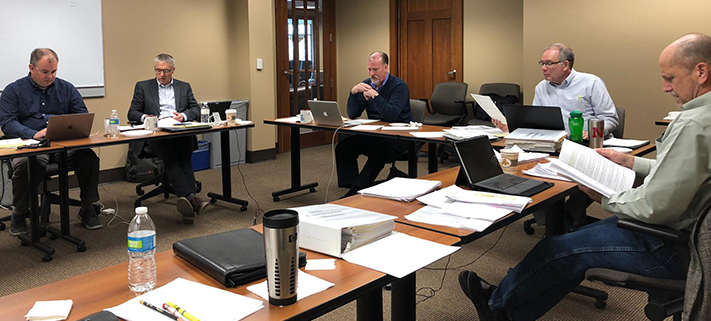
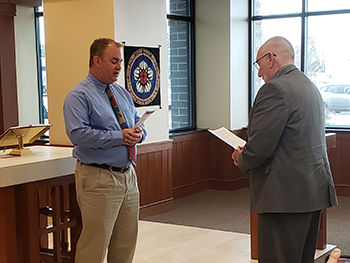
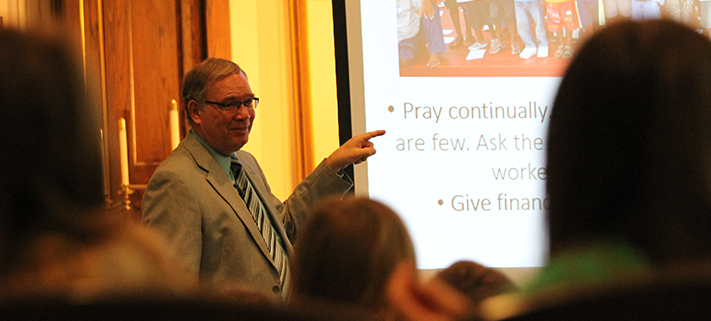
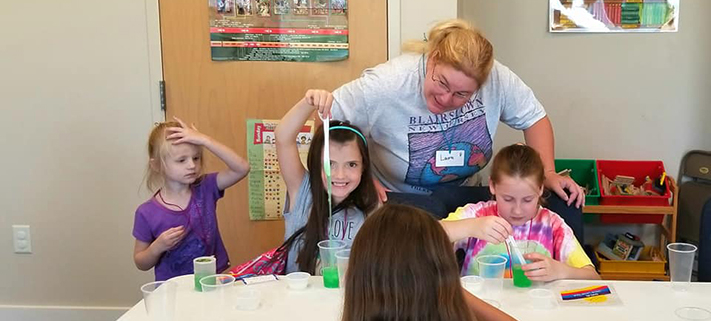
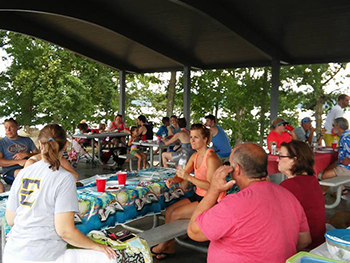




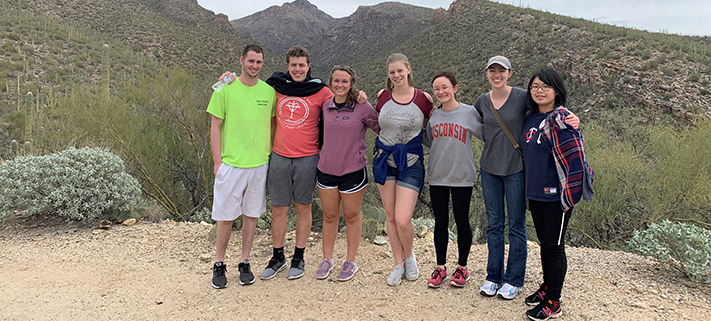
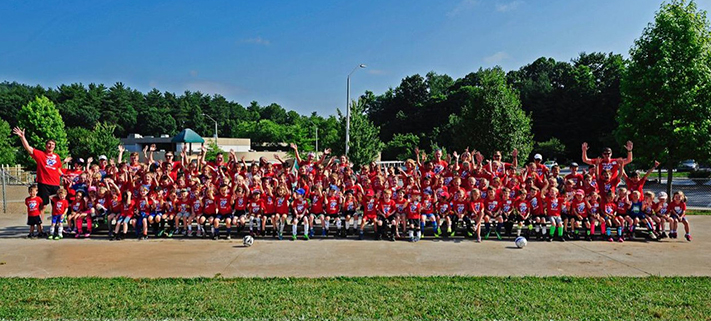
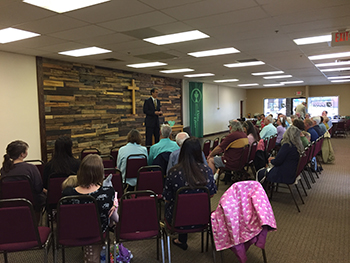
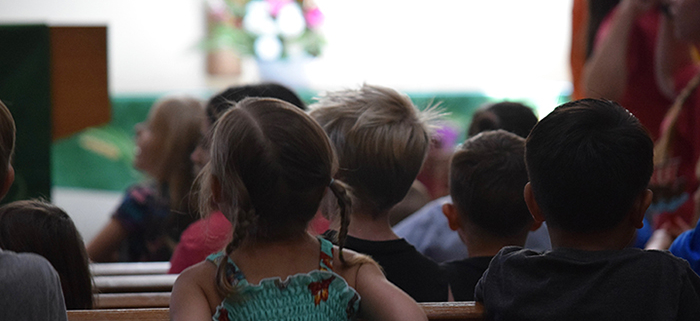


 Last month the audio version of
Last month the audio version of 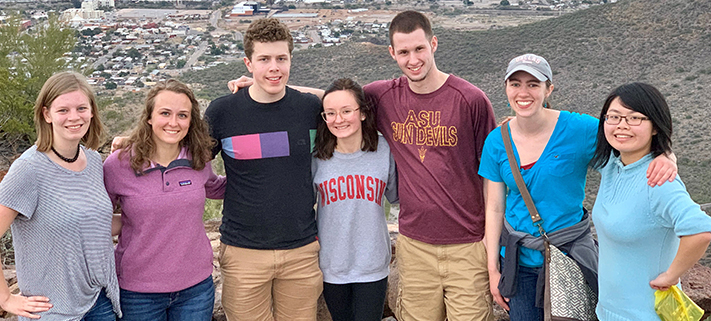



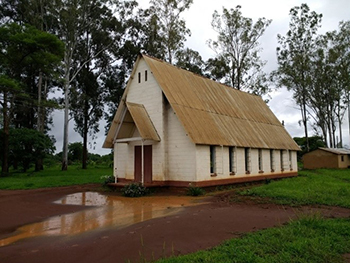
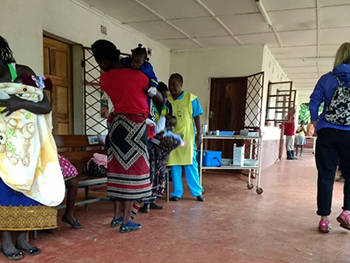

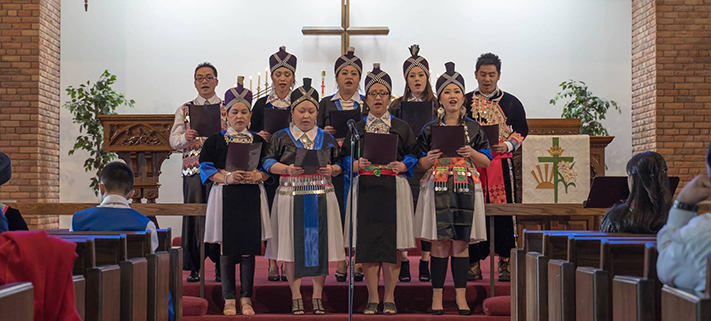

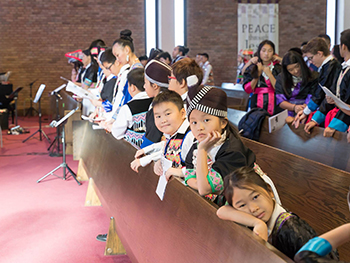
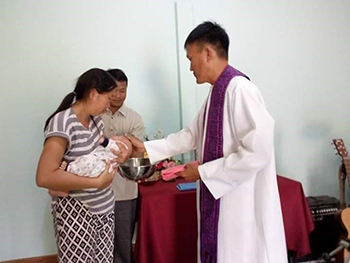
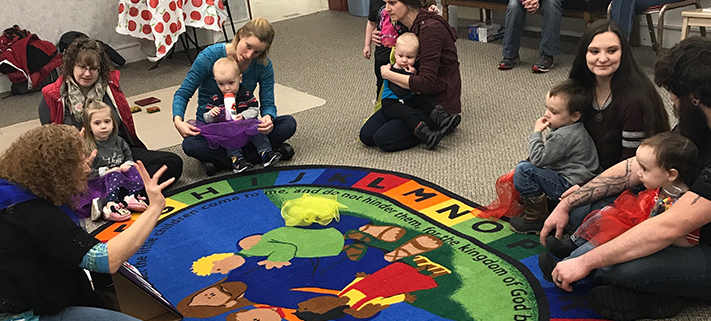
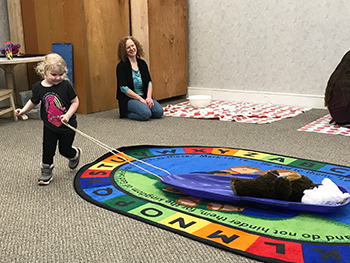
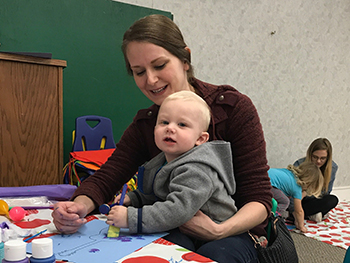
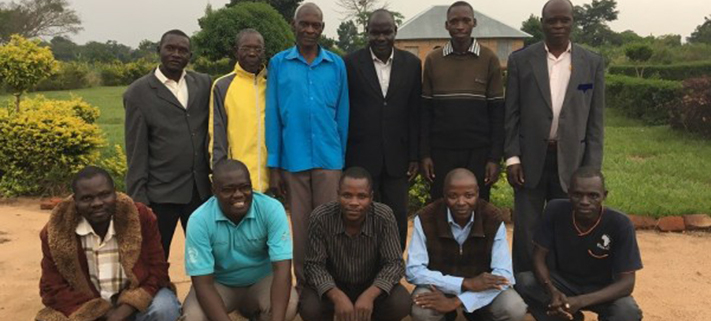
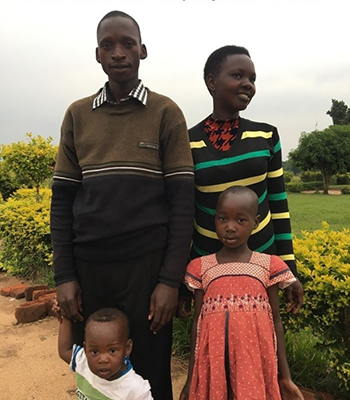
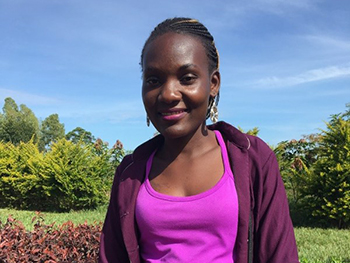
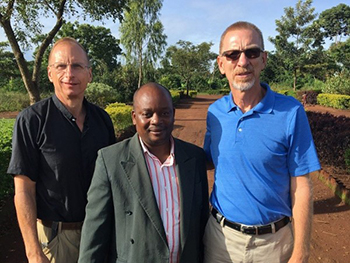
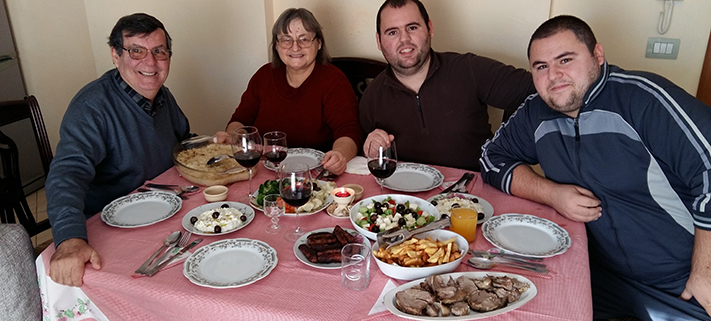
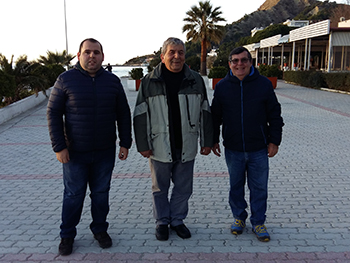

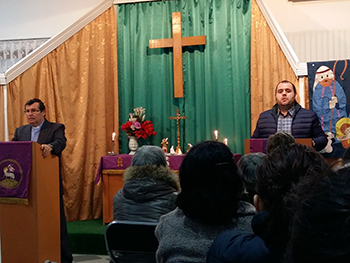
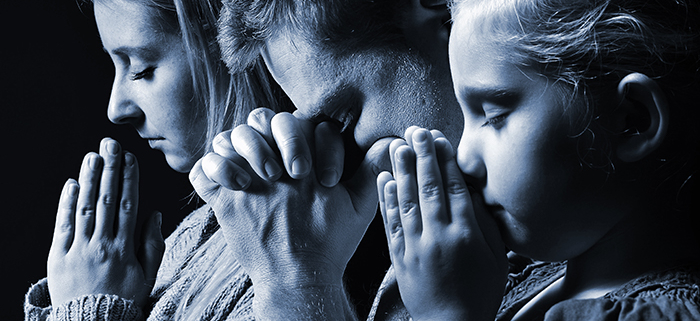
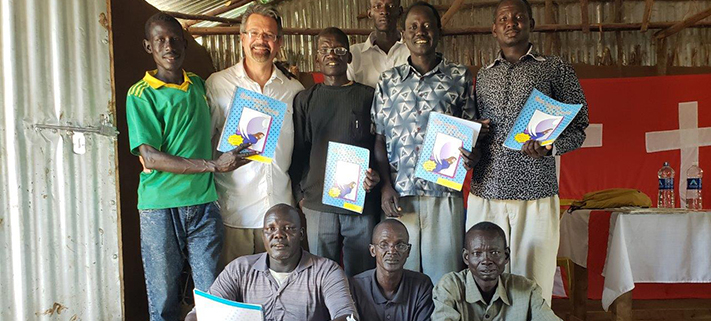
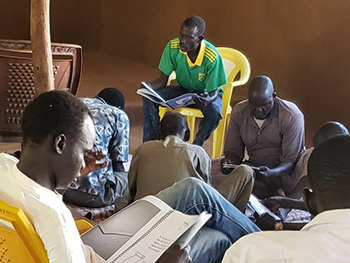
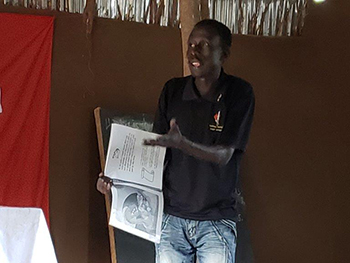
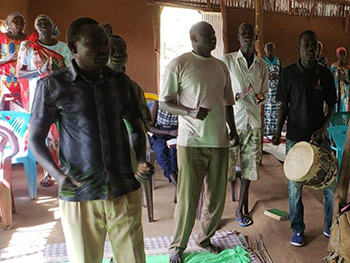

 The audio version of
The audio version of